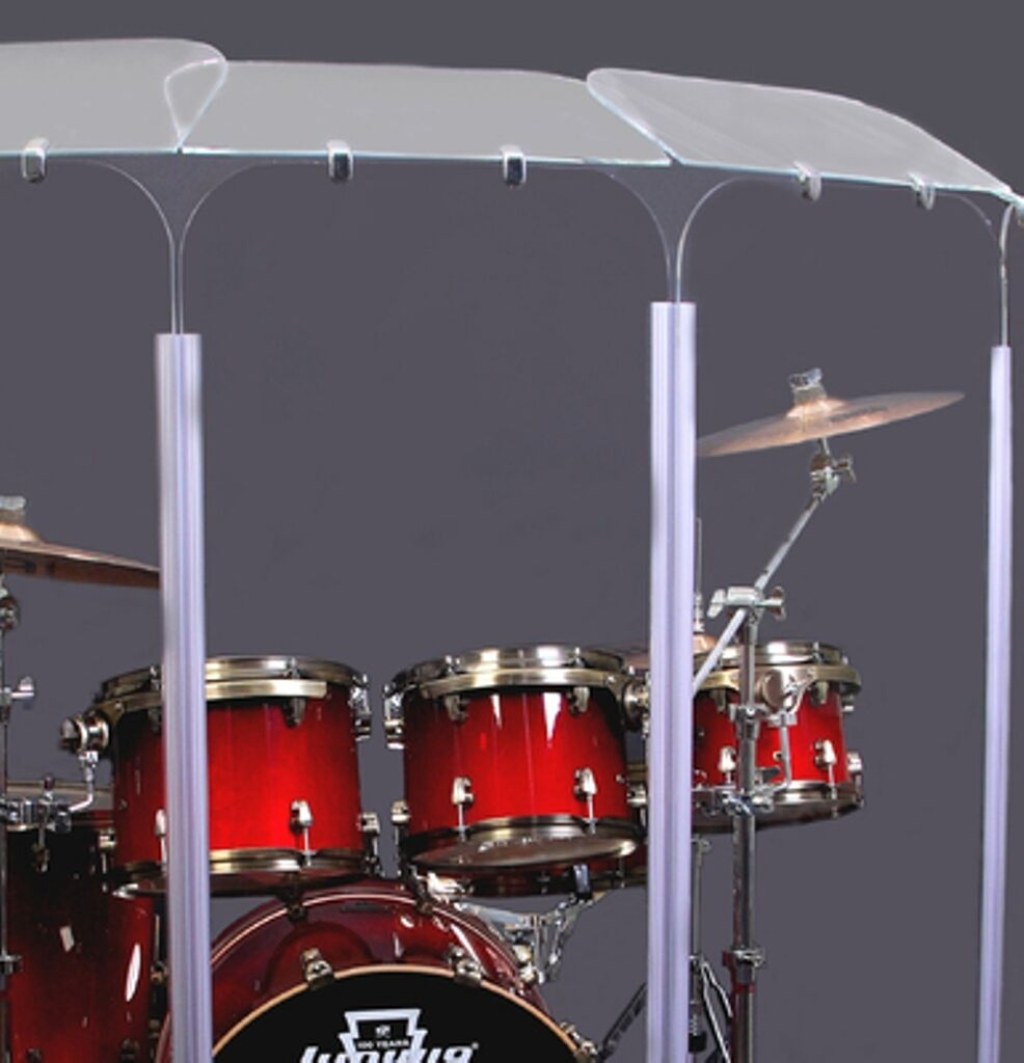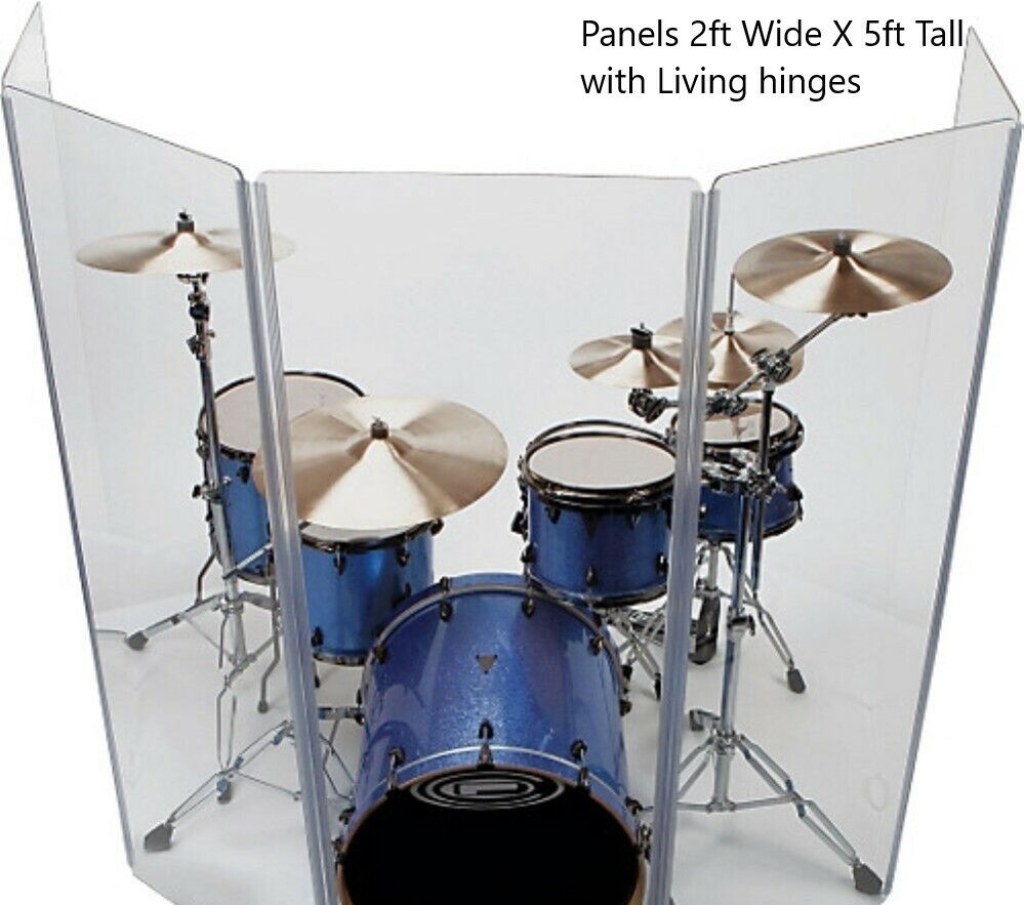Drum Screen: Enhancing the Music Experience
Table of Contents
1. Introduction
2. What is a Drum Screen? 🥁
3. Who Uses Drum Screens? 👥
4. When and Where are Drum Screens Used? 📆 📍

Image Source: ebayimg.com
5. Why Should You Consider Using a Drum Screen? ❓
6. How Does a Drum Screen Work? 🔄
7. Advantages and Disadvantages of Drum Screens 🌟
8. Frequently Asked Questions (FAQ) ❔

Image Source: ebayimg.com
9. Conclusion 🎵
10. Final Remarks ✍️
Introduction
Dear Music Enthusiast,
Welcome to our comprehensive guide on drum screens! In this article, we will delve into the world of drum screens, exploring what they are, who uses them, when and where they are used, why they are beneficial, how they work, as well as their advantages and disadvantages. By the end, you will have a thorough understanding of drum screens and how they can enhance your music experience.

Image Source: gefa.com
1. What is a Drum Screen? 🥁
A drum screen, also known as a drum shield or drum booth, is a transparent barrier placed around the drum set to control the sound levels produced by the drums. It acts as a form of sound isolation, reducing the volume of the drums and minimizing unwanted sound spillage, allowing for better overall sound quality during live performances or studio recordings.
2. Who Uses Drum Screens? 👥
Drum screens are commonly used by musicians, bands, and sound engineers in various musical settings. They are particularly popular in live performances, where controlling the sound levels and minimizing stage volume is crucial. Drum screens are also utilized in recording studios to isolate the drum sound, enabling precise mixing and enhancing the overall recording quality.
3. When and Where are Drum Screens Used? 📆 📍
Drum screens are used in a wide range of musical scenarios, including concerts, worship services, theaters, and stadiums. They are especially effective in venues with limited space or strict noise regulations, as they allow for better control over the drum sound without compromising the overall performance quality. Whether it’s a small intimate gig or a large-scale concert, drum screens can be found enhancing the music experience for both performers and audiences.
4. Why Should You Consider Using a Drum Screen? ❓
There are several compelling reasons to consider using a drum screen. Firstly, drum screens help to reduce stage volume, ensuring that the drums do not overpower other instruments or vocals. This leads to a more balanced and coherent sound mix, allowing each element of the music to be heard clearly. Additionally, drum screens minimize sound spillage into microphones, reducing the risk of feedback and improving overall sound quality. Furthermore, they provide a visual barrier, separating the drummer from the rest of the stage and creating a cleaner and more professional aesthetic.
5. How Does a Drum Screen Work? 🔄
A drum screen consists of transparent panels made from materials such as acrylic or polycarbonate. These panels are arranged in a semi-circular or rectangular shape, surrounding the drum set. As sound is generated by the drums, the drum screen acts as a barrier, preventing the sound waves from traveling freely and redirecting them away from unwanted areas. This redirection helps to achieve better sound isolation and control, resulting in a clearer and more focused drum sound.
6. Advantages and Disadvantages of Drum Screens 🌟
Advantages:
– Improved sound control and isolation
– Reduced stage volume and sound spillage
– Enhanced overall sound quality
– Professional aesthetic and visual separation
– Better monitoring for drummers
– Ideal for venues with noise restrictions
Disadvantages:
– Limited mobility and portability
– Potential reflections and acoustic issues
– Additional setup and maintenance required
– Cost considerations for high-quality materials
– Potential reduction in drummer-audience interaction
7. Frequently Asked Questions (FAQ) ❔
Q: Can drum screens completely eliminate drum sound?
A: While drum screens significantly reduce the volume and control the sound, they cannot completely eliminate it. Some sound will still be audible, but at a much lower level.
Q: Do drum screens affect the drummer’s ability to hear themselves?
A: Drum screens can enhance the drummer’s ability to hear their own playing by reducing stage volume and providing a more controlled monitoring environment.
Q: Are drum screens compatible with electronic drum sets?
A: Yes, drum screens can be used with both acoustic and electronic drum sets to control sound levels and improve overall sound quality.
Q: How do drum screens differ from drum cages?
A: Drum cages are fully enclosed structures that completely isolate the drums, whereas drum screens provide partial isolation while allowing for better visibility and communication on stage.
Q: Can drum screens be customized or adjusted?
A: Yes, drum screens can be customized to fit different drum set configurations and adjusted to achieve optimum sound control and visual aesthetics.
Conclusion 🎵
In conclusion, drum screens are essential tools for musicians and sound engineers seeking to enhance the music experience. With their ability to control sound levels, minimize unwanted spillage, and improve overall sound quality, drum screens play a vital role in achieving a balanced and professional sound mix. Whether you are performing on stage or recording in the studio, a drum screen can greatly enhance the clarity and impact of your drum sound. Consider incorporating a drum screen into your musical setup and take your performances to the next level.
Final Remarks ✍️
In this article, we have explored the world of drum screens, providing a comprehensive understanding of their purpose, usage, advantages, and disadvantages. It is important to note that while drum screens offer significant benefits, they may not be suitable for every musical scenario. Factors such as venue size, acoustic considerations, and personal preferences should be taken into account when deciding whether to incorporate a drum screen into your setup. Ultimately, the goal is to create the best possible music experience for both performers and audiences alike. Keep experimenting, refining, and enjoying the journey of making music!